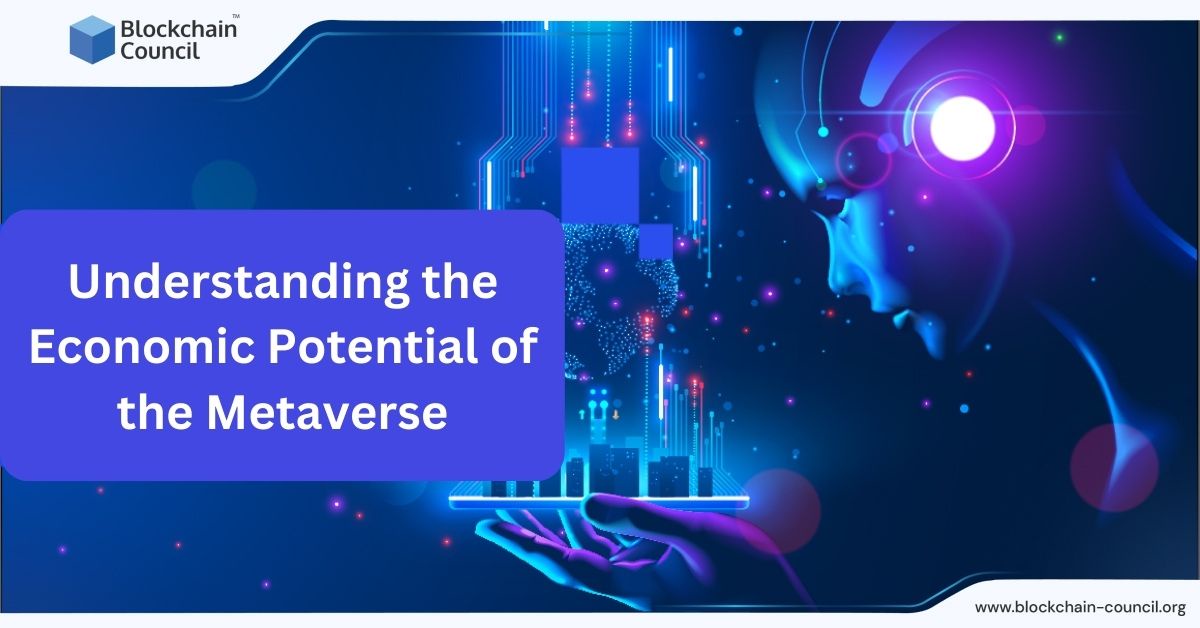In recent years, the concept of the metaverse has captured the imagination of both technologists and entrepreneurs alike. Coined by science fiction author Neal Stephenson in his 1992 novel "Snow Crash," the metaverse refers to a virtual universe that encompasses multiple interconnected virtual worlds, where users can interact with one another and engage in a wide range of activities. With the advancements in virtual reality (VR), augmented reality (AR), and blockchain technology, the metaverse is no longer just a concept from science fiction but a real possibility. As metaverse technology becomes more extensively accepted, additional economic opportunities will arise, such as the creation of new markets and business models, the development of improved working methods, and the transformation of training and development.
The global metaverse is set to make a significant economic impact, with early estimates projecting a value of over $3 trillion by 2031. Cities like Dubai, Seoul, and Taiwan are already leading the way, capitalizing on the metaverse's potential. This virtual realm presents an array of opportunities across various sectors, including education, remote work, and more. For creators, the metaverse offers a platform to explore new forms of art and entertainment, forge direct and lucrative connections with audiences, and engage with a broader range of individuals beyond the limitations of existing technology.
To fully unlock the metaverse's economic potential, two critical factors come into play: interoperability and portability. These elements will be facilitated by the wider adoption of web3 technologies. While policymakers understandably focus on blockchain's financial applications, such as stablecoins, cryptocurrencies, and crypto exchanges, it is essential to acknowledge that blockchain also possesses numerous non-financial uses that serve as foundational pillars for the metaverse economy.
In this article, we will explore the economic potential of metaverse technology and how it can revolutionize various industries.
Virtual Real Estate and Property Rights
One of the fundamental aspects of the metaverse is virtual real estate. Just like in the physical world, virtual spaces within the metaverse can be bought, sold, and developed. Companies and individuals can purchase virtual land and build virtual structures, which can serve as marketplaces, entertainment venues, or even educational institutions. The scarcity of desirable virtual locations can drive up the value of virtual real estate, creating a new market for property trading. Moreover, the introduction of blockchain technology can ensure the ownership and transferability of virtual property rights, providing a secure and transparent system for managing virtual assets.
Digital Goods and Services
The metaverse opens up a vast market for digital goods and services. Users can buy and sell virtual items such as clothing, accessories, virtual pets, and even virtual currencies within these virtual worlds. Companies can create and sell digital assets, including virtual artwork, music, and virtual experiences. The demand for unique and exclusive digital items can create new opportunities for artists, designers, and content creators to monetize their creations. The metaverse can serve as a platform for creators to showcase their talent and generate income from a global audience.
Virtual Commerce and Advertising
As the metaverse becomes more immersive and realistic, it will provide an ideal environment for virtual commerce and advertising. Brands can create virtual storefronts where users can explore and purchase products. Virtual advertisements can be placed strategically within virtual worlds, reaching a highly engaged and targeted audience. Additionally, the metaverse can offer innovative advertising formats that go beyond traditional banners and videos, allowing brands to create interactive and immersive experiences for consumers. This convergence of e-commerce and advertising within the metaverse has the potential to redefine how businesses reach and engage with customers.
Virtual Workspaces and Remote Collaboration
The metaverse has the potential to transform the way we work and collaborate. Virtual workspaces can provide remote teams with a more immersive and interactive environment to collaborate on projects. Virtual meetings can be conducted in realistic settings, eliminating the barriers of physical distance and enabling global collaboration. Moreover, the metaverse can offer tools and platforms for virtual training, conferences, and events, reducing the need for physical travel. This can lead to increased productivity, cost savings, and a more flexible work environment.
For a better understanding and effective implementation of metaverse features, several institutions and organizations are offering Metaverse training programs.
Gaming and Entertainment
The gaming and entertainment industries are already experiencing the impact of the metaverse. Online multiplayer games have become increasingly social and interconnected, creating virtual worlds where millions of players can interact and engage in various activities. With the advent of VR and AR technologies, these virtual worlds can become even more immersive and realistic. Virtual concerts, sports events, and exhibitions can be hosted within the metaverse, attracting a global audience and generating new revenue streams. The metaverse has the potential to blur the lines between gaming and entertainment, offering new forms of interactive and participatory experiences.
Education and Training
The metaverse has significant implications for education and training. Virtual classrooms can provide students with a more engaging and interactive learning environment. Students can explore virtual simulations, interact with virtual objects, and collaborate with peers from around the world. Virtual reality can offer immersive training experiences for various industries, such as healthcare, aviation, and manufacturing, allowing trainees to practice skills in a safe and controlled virtual environment. The metaverse can democratize access to education and training, reaching individuals who may not have access to traditional educational resources.
Social and Cultural Impact
Beyond its economic potential, the metaverse can have profound social and cultural implications. It has the potential to bring people together from different parts of the world, fostering global connections and cultural exchange. Virtual communities can form around shared interests and passions, transcending physical boundaries. However, it is crucial to address issues of inclusivity, diversity, and privacy within the metaverse to ensure that it remains a safe and welcoming space for all users.
Conclusion
The metaverse presents immense economic potential across various industries. From virtual real estate and digital goods to virtual commerce and advertising, the metaverse is poised to revolutionize the way we live, work, and interact. It offers new opportunities for entrepreneurs, creators, and businesses to innovate and monetize their offerings. However, it is essential to navigate the challenges and ethical considerations associated with the metaverse to create a sustainable and inclusive virtual ecosystem. As the metaverse continues to evolve, it will be fascinating to witness its impact on the global economy and society as a whole.
If you are looking for online Metaverse certification courses, then Blockchain Council is the right choice for you. Blockchain Council offers up-to-date and in-demand blockchain courses, metaverse courses, and all the other blockchain and AI-related courses at pocket-friendly prices. These courses are extensively designed according to industry trends. So, check out Blockchain Council’s website for the available courses and enroll in one that best meets your expectations!


No comments yet